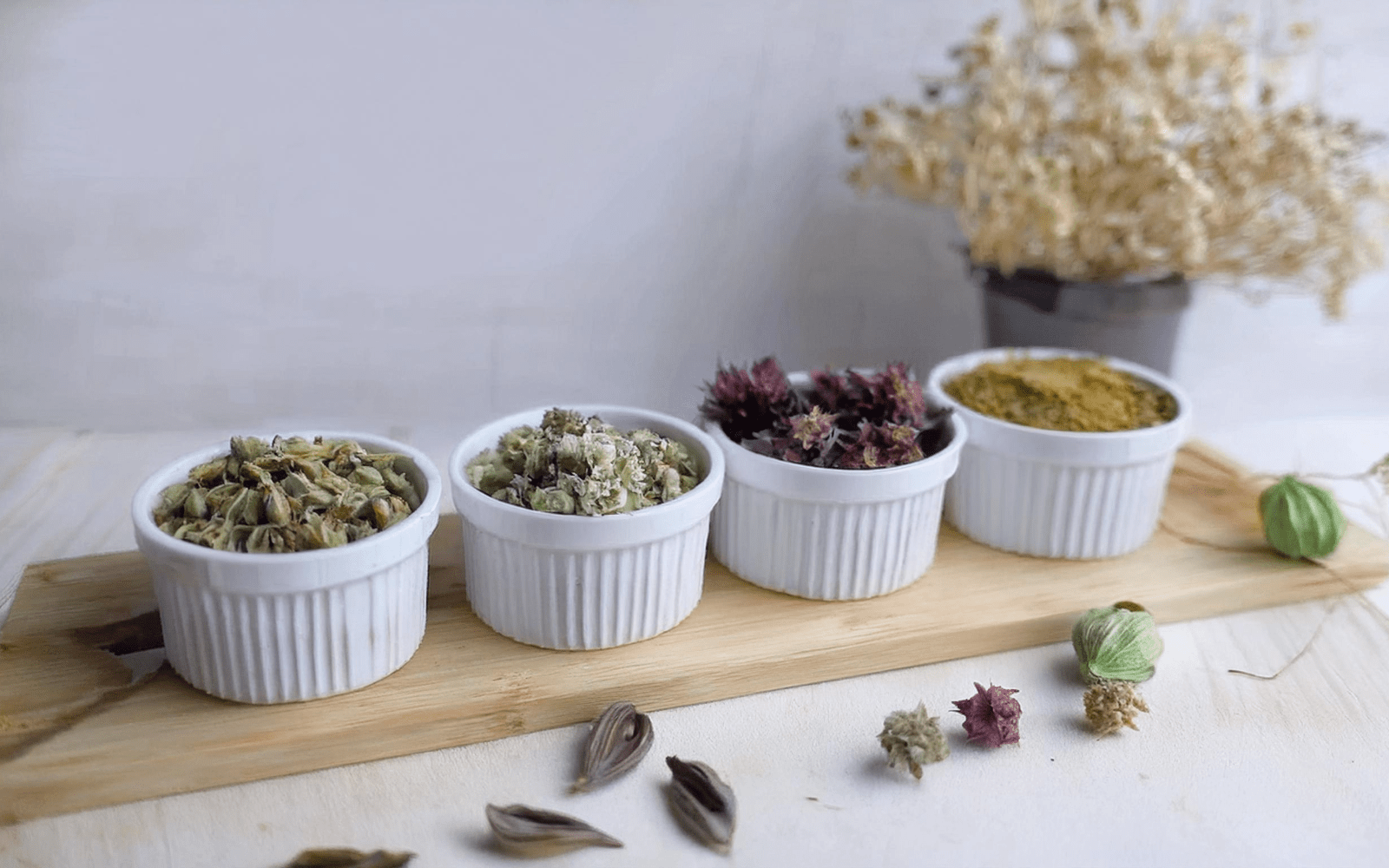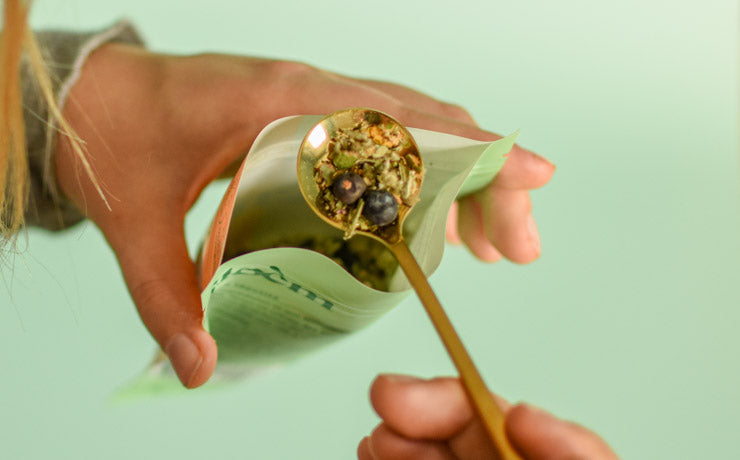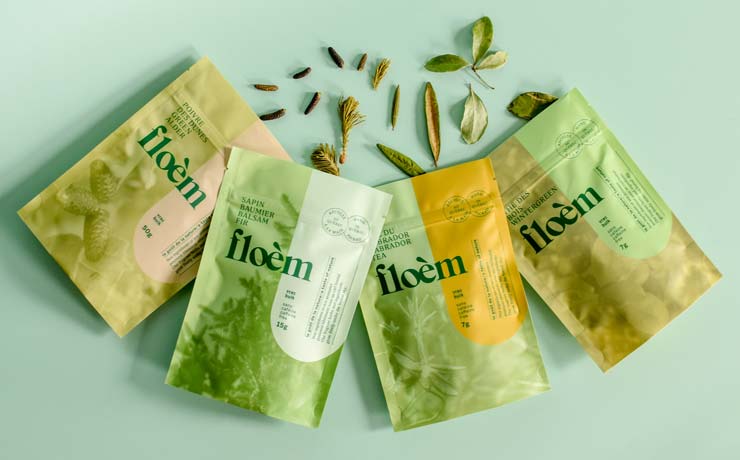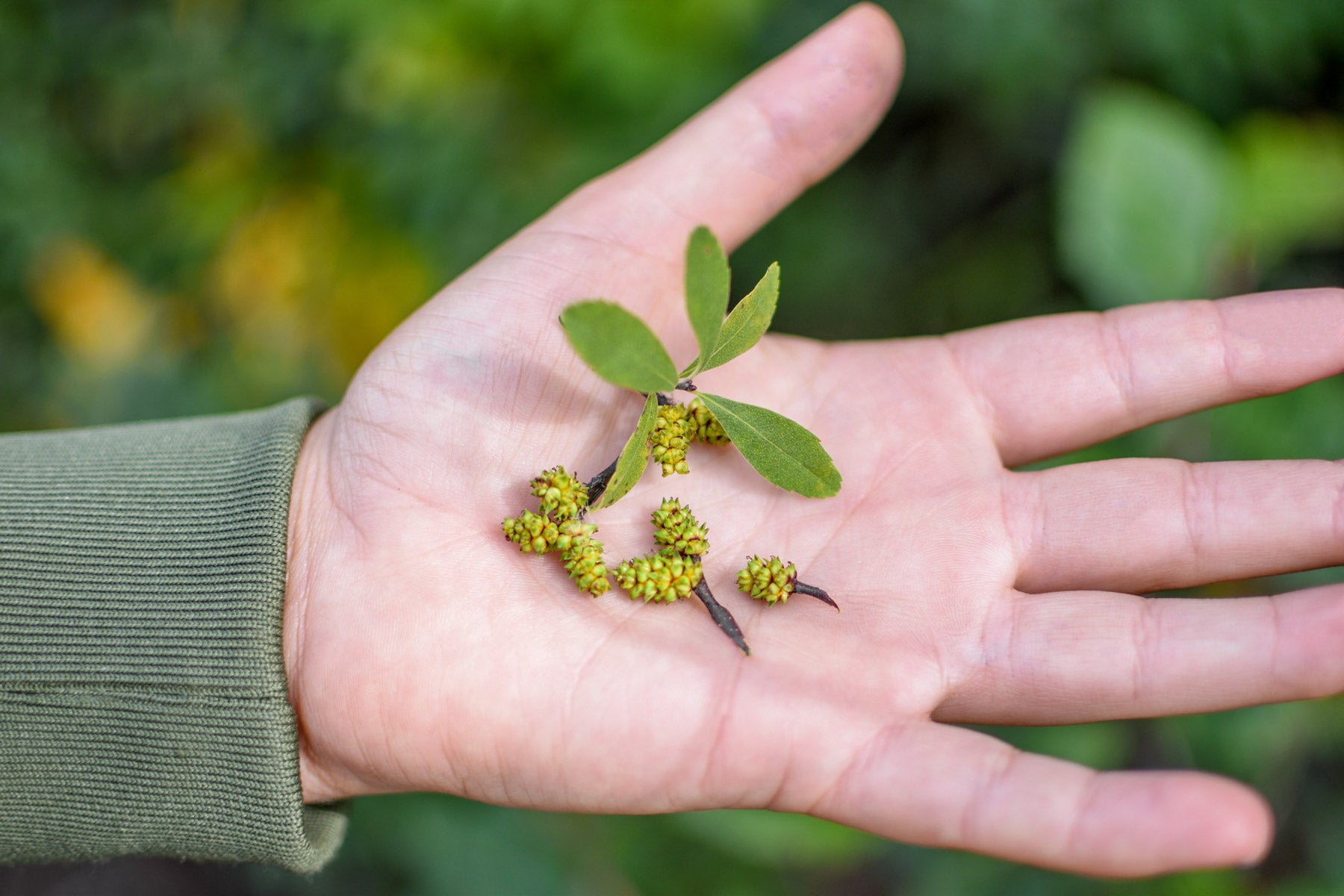
Herbal infusions: natural remedies for digestive problems
Do you frequently experience bloating, stomach pains, or constipation? Rest assured! Digestive issues affect many of us and can significantly impact our daily lives. They are often caused by stress, an unbalanced diet, lack of sleep, and the use of certain medications such as antibiotics. Similarly, some medical conditions and food intolerances can also be the root cause.
These issues often manifest through unpleasant symptoms like feeling bloated, difficulty passing stool, occasional diarrhea, uncomfortable intestinal gas, and abdominal pain.
How do plants affect the digestive system?
Digestion, often overlooked, plays a central role in our well-being. When it comes to digestive issues, plants provide a wide range of natural solutions that we will explore together. Plants, with their diversity and benefits, offer gentle yet valuable support. Here are some properties and their actions within the digestive system.
1. Cholagogue Plants for Digesting Fatty and Rich Meals
These are plants that act on the liver and gallbladder to alleviate difficult digestion. In the liver, bile production aids in digesting fats. Thus, plants with cholagogue properties such as peppermint, St. John's Wort, or marjoram promote bile production, thereby facilitating the digestive process.
Similarly, calendula aids in liver detoxification by stimulating bile release into the intestine, thereby initiating bile flow from the gallbladder. Additionally, milk thistle has long been used in the West as a natural remedy for liver problems. Recent research has confirmed its ability to protect the liver from damage caused by alcohol poisoning.
2. Antispasmodic Plants to Soothe Abdominal Pain
At times, our digestive system tightens, causing stomach cramps and uncomfortable abdominal pain. Indeed, certain plants with antispasmodic properties such as chamomile, lavender, peppermint, and sage, can help relieve stomach cramps and soothe intestinal spasms.
Additionally, lemon balm is believed to have a calming effect on painful spasms of the stomach and intestines.
3. Bitter Plants: A Bitter Taste for Top-Notch Digestion!
Contrary to popular belief, bitter plants offer a wealth of benefits for digestive health. Despite their unpalatable taste, these plants contain a variety of active compounds that stimulate and support the digestive system.
The Science Behind the Bitter Taste
Our tongues are equipped with five taste receptors: salty, sour, sweet, bitter, and umami. When we consume bitter plants, these receptors send signals to the brain, triggering an increase in gastric juice production in the stomach.
Bitter plants contain compounds that stimulate the digestive organs to produce their own digestive enzymes. These enzymes are essential for breaking down food molecules and absorbing nutrients.
The bitter principles in these plants have toning effects, promoting the overall well-being of the digestive system.
Common Bitter Plants
While wormwood (artemisia absinthium) and centaury are renowned for their intensely bitter taste, they are contraindicated for individuals with gastroesophageal reflux disease (GERD) or gastric or duodenal ulcers.
Milder Bitter Plants
Fortunately, there are milder bitter plants, such as milk thistle, yarrow (leaves), rosemary, and elderberry, that offer similar digestive benefits without the overpowering bitterness.
Enjoyable Consumption
Given the potential unpleasantness of their taste, bitter plants are often consumed in the form of teas or infusions, sometimes blended with other herbs. These multi-plant blends provide a combination of health benefits and a more palatable flavor profile.
An Example: Rose & Chamomile Infusion
For instance, the Rose & Chamomile infusion (available in loose leaf and tea bag formats) combines the benefits of milk thistle and yarrow – two bitter plants - with chamomile and rose petals to offer a subtle blend of floral and rustic flavors while promoting digestive comfort after overindulgence.
4. Laxative Plants for Constipation Relief
When constipation strikes, nature offers a gentle solution in the form of laxative plants. These botanical allies provide mild laxative effects that promote smooth bowel movements and ease digestive discomfort.
For such digestive discomfort, fenugreek and ash are excellent choices! Their gentle laxative effects stimulate intestinal transit and ensure smooth digestion.
5. Carminative Plants for Gas Relief and Bloating
When gas and bloating disrupt your digestive comfort, turn to carminative plants. Their properties help expel gas from the digestive tract, alleviating discomfort and promoting a more comfortable digestive experience.
Carminative Powerhouse Plants:
Among these carminative plants, we can mention yarrow, mugwort, coriander, or lavender, which help counter symptoms of indigestion and bloating, facilitating a more comfortable digestion.
Similarly, a simple infusion prepared from wintergreen leaves can also provide relief from flatulence and other gastric discomforts. Woodruff contains compounds that stimulate the digestive system and promote the expulsion of gas.
6. Plants for Diarrhea Relief
If your intestines are unsettled, antidiarrheal plants like cocoa, elderberry, or coriander can be natural solutions to these discomforts. The astringent nature of cocoa due to its bitter quality may contribute to its antidiarrheal effects, helping to stabilize digestive issues.
Coriander seeds are also effective against diarrhea. They help stabilize intestinal function through their antispasmodic and carminative properties.
7. Antiemetic Plants for Nausea and Vomiting
Plants with antiemetic properties are used against nausea and vomiting that can occur following food poisoning, states of stress, fever, or even motion sickness.
Thus, numerous plants like mugwort and raspberry help alleviate these characteristic symptoms. Lemon balm, which is a plant with multiple digestive virtues, also harbors anti-nausea properties. Ginger is also a recognized natural antiemetic for its effectiveness against nausea.
What Are the Best Digestive Herbal Teas?
Far from being just a mechanical process, digestion plays a crucial role in our overall well-being. When the digestive system functions properly, it allows for the absorption of essential nutrients and the elimination of waste.
Beyond its essential role in nutrient assimilation, digestion also influences the quality of our sleep and immune system.
1. Digestive Herbal Infusions for a Good Night's Sleep
A smooth and harmonious digestion promotes the production of melatonin, a hormone that regulates the sleep cycle. Conversely, difficult digestion can disrupt sleep in several ways:
- Bloating and acid reflux can cause nocturnal awakenings and a feeling of fatigue upon waking.
- Intestinal transit disorders such as constipation or diarrhea can also disrupt sleep.
- An unbalanced diet or late meals can also impair sleep quality.
By promoting optimal digestion, plants can help us regain peaceful and restorative sleep.
For instance, the Thuya & Lavender herbal tea (also available in tea bags) will help you wind down your evenings gently while soothing digestive discomfort after meals. At the heart of its composition, 5 plants act in perfect synergy: hawthorn, thuja, Labrador tea, peppermint, and lavender.
The dual action - digestive and sedative - of lavender reinforced by peppermint works in synergy with the calming effects of hawthorn to create a state of deep relaxation.
If you're looking to regain quality sleep, check out our article presenting the top 4 herbal teas for peaceful nights.
2. Digestive Herbal Teas: How to Strengthen the Immune System through Digestion
Our digestive system is intricately linked to our immune system. The gut, home to about 70% of our body's immune cells, plays a crucial role in fighting off infections and external aggressors.
Effective digestion maintains a healthy gut environment, essential for a well-functioning immune system. Optimal nutrient absorption enhances the body's natural defenses.
For instance, the Balsam Fir & Cacao herbal tea, suitable for all seasons, offers a multitude of benefits, promoting smooth digestion and boosting natural defenses. This infusion, crafted from carefully selected ingredients, combines the antiseptic and anti-inflammatory properties of balsam fir with the digestive virtues of calendula petals and lemon balm. Additionally, the cocoa shells in this tea provide a tonic action, collectively supporting natural defenses and stabilizing digestive issues.
If you seek natural solutions to daily support your immune defenses, explore our article dedicated to the secrets of immunity
The Effectiveness of Digestive Plants and Herbal Teas
Delving into the remarkable properties of plants unveils a world of natural solutions to effectively support our digestive system.
A vast array of plants offers valuable and specific support for digestion, whether it's facilitating food breakdown, relieving bloating, or soothing abdominal discomfort.
By incorporating these infusions into your daily routine in the form of digestive herbal teas, you are not only caring for your digestive organs but also for your overall health.
Explore the diverse range of plants and infusions featured in the "Digestion & Bloating" collection to discover those that best suit your needs.









Leave a comment
This site is protected by hCaptcha and the hCaptcha Privacy Policy and Terms of Service apply.